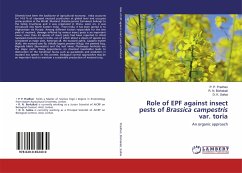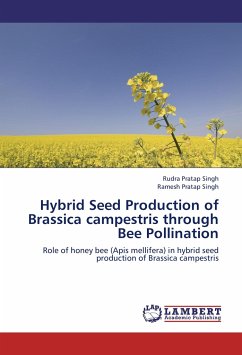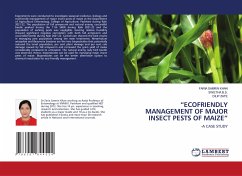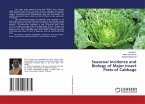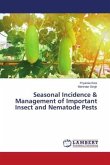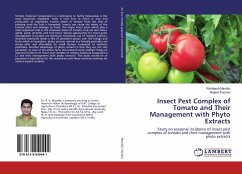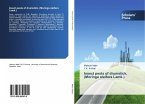Oilseeds have been the backbone of agricultural economy . India accounts for 14.8 % of rapeseed mustard production at global level and occupies prime position in the World. Mustard, Brassica juncea (Linnaeus) belongs to the family Cruciferae and it was originated in China. Later on, it was introduced into North Eastern India . From India, it has been spread in to Afghanistan via Punjab. Among different factors responsible for the low yield of mustard, damage inflicted by various insect pests is an important cause; more than 43 species of insect pests had been reported to infest rapeseed-mustard crop in India, out of which about a dozen of species are considered as major pest. Amongst all, the mustard aphid, Lipaphis erysimi (Kalt), the mustard saw fly, Athalia lugens proxima (Klug), the painted bug, Bagrada hilaris (Burmeister) and the leaf miner, Phytomyza horticola are the major pests. Heavy dependence on chemical insecticides leads to destruction of the beneficial fauna such as parasitoids and predators in mustard eco system. In this context, biological control approaches may be an important tools to maintain a sustainable production of mustard crop.
Bitte wählen Sie Ihr Anliegen aus.
Rechnungen
Retourenschein anfordern
Bestellstatus
Storno

